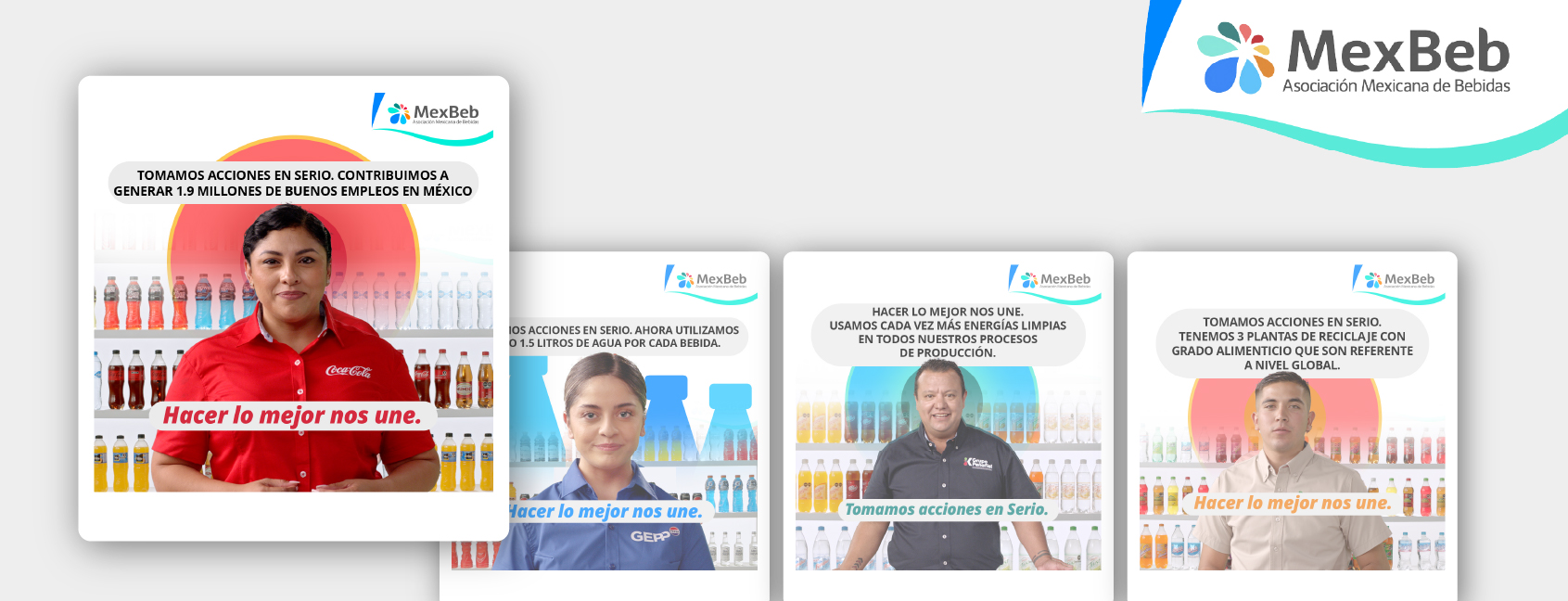-
TrendsEnvironmentSustainability / ESG
-
SectorFood and Beverage
-
CountriesMexico
MexBeb, the Mexican beverage association, launches ‘Hacer lo Mejor Nos Une’, a campaign that reaffirms the soft drinks industry’s commitment to sustainable development and the well-being of Mexican families. Creatively led by Pepe Beker, Partner and Managing Director of Marketing Solutions Strategy for Latam North at LLYC, the initiative highlights concrete actions focused on the circular economy, water efficiency and carbon footprint reduction, demonstrating the industry’s leadership in building a healthier and more sustainable Mexico.
The campaign highlights MexBeb’s 2030 agenda, with clear initiatives that seek to collect 80% of the PET put on the market and use at least 30% recycled material in its packaging. MexBeb currently operates three recycling plants and is building a new one in Tabasco, reinforcing its commitment to the circular economy. It also aims to reduce water use to 1.47 litres per litre of beverage produced, while promoting community projects such as the creation of wetlands and rainwater harvesting systems in schools and vulnerable communities. On the environmental front, MexBeb also aims to reduce greenhouse gas emissions by 16% by 2030 through the use of renewable energy and logistics optimisation. In parallel, it will increase its portfolio of low- or no-calorie products from 55% to 75% as part of its commitment to health.
The campaign uses the concept of the ‘infinite sofa’ as a visual metaphor, symbolising an unlimited commitment to the well-being of families and the environment. Through a transparent and accountable narrative, ‘Doing Better Brings Us Together’ communicates how MexBeb responds to today’s challenges while inspiring real change.
We have collaborated on this initiative by demonstrating that strategic creativity is a lever to build a more sustainable and healthy future for all.



